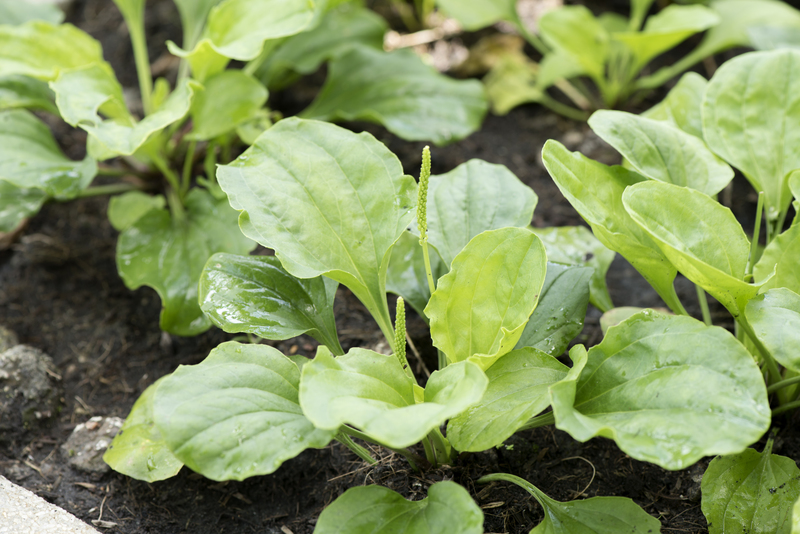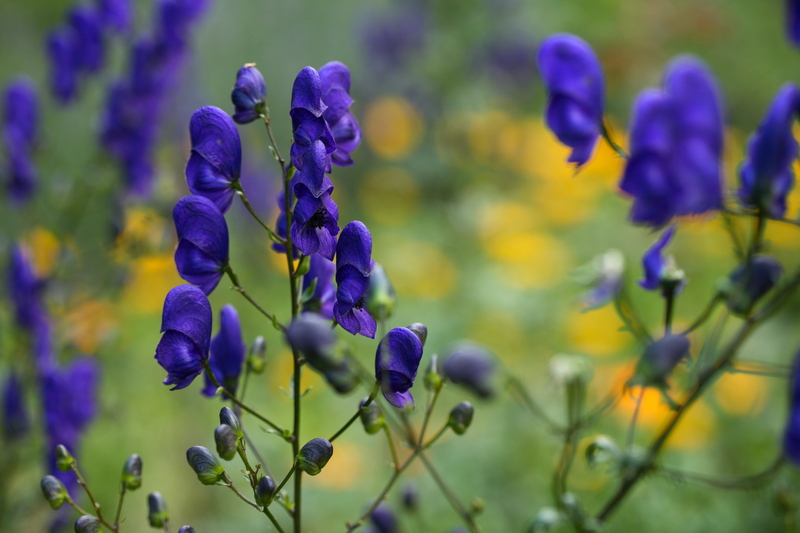Explore Vital Gardening Tools for Nature Lovers
Posted on 07/09/2025
Explore Vital Gardening Tools for Nature Lovers
Are you a nature lover looking to transform your garden into a thriving paradise? Whether you're new to gardening or a seasoned green thumb, the right set of tools can make a significant difference. In this comprehensive article, we'll help you discover essential gardening tools that every nature enthusiast should have. From classic hand tools to modern innovations, we'll explore their uses, features, and tips to maximize your gardening experience.

Why Investing in Quality Gardening Tools Matters
Gardening isn't just a hobby - it's a way to connect with nature, relieve stress, and create a beautiful outdoor space. However, the success of your garden depends heavily on the gardening tools for nature lovers that you choose. Using the right tools not only makes tasks easier and more enjoyable, but ensures the health and vitality of your plants. Investing in well-made, ergonomic tools can:
- Save time and effort by streamlining repetitive tasks
- Reduce risk of injury and strain, especially with ergonomic designs
- Enhance precision when planting, pruning, or weeding
- Support sustainability through durable, long-lasting materials
Ready to elevate your gardening experience? Let's dive into the most important gardening tools for nature enthusiasts.
Must-Have Gardening Tools for Nature Enthusiasts
1. Hand Trowel
The hand trowel is a versatile tool and a staple for every gardener. Hand trowels are perfect for digging small holes, transplanting seedlings, and scooping soil or compost. Choose a sturdy, rust-resistant trowel with a comfortable grip to reduce fatigue.
- Material: Stainless steel trowels resist rust and offer longevity
- Grip: Look for ergonomic or cushioned handles for comfort
- Design: Narrow blades for digging, wider ones for scooping
Pro Tip: Always rinse and dry your hand trowel after use to prolong its life.
2. Garden Gloves
Protecting your hands is crucial when handling soil, plants, and sharp objects. Gardening gloves shield you from thorns, splinters, chemicals, and blisters. Nature lovers should select gloves that are breathable, flexible, and water-resistant for all-weather gardening.
- Cotton gloves: Lightweight and breathable for light tasks
- Leather gloves: Durable, thorn-proof for heavier-duty work
- Nitrile-coated gloves: Water-resistant, flexible, suitable for wet conditions
Remember: A spare pair of gloves is always handy, especially during the planting season!
3. Pruning Shears (Secateurs)
Pruning shears are indispensable for tidying shrubs, clipping flowers, and removing dead stems. They ensure clean cuts, which help prevent disease and encourage healthy plant growth. Nature aficionados should seek out bypass or anvil styles depending on the type of foliage.
- Bypass pruners: Two curved blades for live, green stems
- Anvil pruners: One straight blade for dead wood and tougher branches
- Safety lock: For safe storage and handling
- Replaceable blades: For easy maintenance
Keep your blades sharp and clean for precise, effortless pruning.
4. Garden Fork
For breaking up compacted soil, turning compost, or aerating bedded areas, the garden fork is essential. The sturdy tines can penetrate hard ground where a shovel fails, making it a vital gardening tool for nature lovers looking to improve soil structure.
- Digging fork: Thicker, stronger tines for heavy-duty soil
- Border fork: Lighter, suitable for lighter soil or tighter spaces
Quality Tip: Opt for forks with stainless steel heads and ash or hardwood handles for maximum strength and comfort.
5. Watering Can / Hose
Proper hydration is key for any flourishing garden. Depending on your garden size and plant needs, a watering can or a quality garden hose with adjustable spray nozzles is indispensable. Nature lovers committed to sustainability may also use rainwater harvesting systems linked to their watering devices.
- Watering cans: Precise control for delicate seedlings or indoor pots
- Garden hoses: For larger outdoor spaces; look for kink-resistant, UV-protected types
- Drip irrigation systems: Water-efficient and great for eco-friendly gardening
Invest in a watering solution that matches your garden's scale and environmental goals.
6. Spade
The classic garden spade features a straight-edged blade, ideal for digging, edging, and lifting sod. A spade with a solid, ergonomic handle lets you tackle tough soil or create clean borders with ease.
- Stainless steel blades: For rust resistance and easy cleaning
- Wide tread: More comfortable foot placement for digging
- Short or long handle: Choose based on preferred leverage and control
Did you know? A spade is excellent for dividing perennials and transplanting shrubs - versatility at its best!
7. Hoe
Hoes are used for weeding and cultivating soil around plants. Designs include standard hoes, stirrup (oscillating) hoes, and Dutch hoes, each tailored to specific weeding tasks. Keeping weeds at bay is vital for healthy, organic gardens.
- Stirrup/Oscillating hoe: Cuts weeds on push and pull strokes for efficiency
- Draw hoe: Good for shaping soil and furrowing seed drills
Choose the right hoe based on your garden beds and the types of weeds you encounter.
8. Rake
Rakes are multifunctional - use them to clear leaves, level soil, spread mulch, or prepare seedbeds. There are different rakes for various tasks:
- Leaf rake: Lightweight with flexible tines for collecting leaves
- Garden/Landscape rake: Rigid, metal teeth for soil or gravel work
Keeping your gardening area tidy not only looks good but helps prevent pest infestations and plant disease.
9. Wheelbarrow or Garden Cart
Transporting soil, compost, plants, or tools is much easier with a wheelbarrow or a sturdy garden cart. These save time and reduce physical strain, especially in larger gardens.
- Single-wheel barrows: Easier to maneuver in tight spaces
- Double-wheel barrows or carts: Better balance for heavy loads
Maintenance Tip: Check tire pressure and ensure handles are splinter-free for safe handling.
10. Soil Tester or pH Meter
For nature lovers seeking a thriving, healthy garden, understanding your soil's pH and nutrient levels is vital. Digital or analog soil testers are easy to use and give instant feedback, so you can tailor your fertilizing and planting choices.
- Test for pH: Most plants prefer slightly acidic to neutral soil (pH 6-7)
- Check nutrients: N-P-K readings (nitrogen, phosphorus, potassium)
Using a soil tester helps prevent over-fertilizing and supports organic gardening by guiding precise amendments.
Specialized Tools for Nature-Loving Gardeners
Planting Dibbler or Bulb Planter
For those passionate about bulbs and evenly spaced seeds, a dibbler or bulb planter is a must-have. These tools create uniform holes for sowing, ensuring proper depth and spacing for successful germination.
Compost Bin and Compost Turning Tool
Eco-conscious gardeners benefit from making their own compost. A compost bin, paired with a purpose-built turning tool or aerator, turns kitchen scraps and garden waste into nutrient-rich humus for your plants. Healthy compost means healthier plants!
Pruning Saw
Larger branches and dense shrubs may require the power of a pruning saw. Choose a folding or straight-handled saw, depending on your landscape. Look for rustproof blades and ergonomic handles for comfort during extended use.
Kneeling Pad or Garden Kneeler
Protect your knees with a foam kneeling pad or a convertible garden kneeler/seat - especially useful for prolonged weeding, planting, or harvesting. Many kneelers also include pockets or trays for tool storage.
Plant Labels and Garden Twine
Labeling your plants and using natural-fiber twine to support vines or new growth can keep your garden organized and healthy. Biodegradable options minimize your environmental impact.
Choosing the Best Gardening Tools for Nature Lovers
Materials Matter
- Stainless Steel - Rust-resistance, easy to clean, long lifespan
- Carbon Steel - Durable, holds an edge, requires maintenance
- Aluminum - Lightweight, less prone to rust, for light-duty tools
- Wooden Handles - Ergonomic and shock-absorbing; ash and hickory are best
Ergonomics and Comfort
Nature lovers often spend hours outdoors, so ergonomic grips, balanced weight, and proper sized handles reduce fatigue and risk of repetitive strain injuries. Test different shapes and sizes to find what fits your hands best.
Sustainability Features
- Look for FSC-certified wood handles
- Choose tools with replaceable parts to extend their lifespan
- Opt for brands with eco-friendly practices
Caring for Your Gardening Tools
Well-maintained essential gardening implements last for years. After each gardening session:
- Rinse off soil and debris from blades and handles
- Dry tools thoroughly to prevent rust
- Sharpen blades on shears, pruners, and hoes as necessary
- Oil wooden handles and metal parts periodically for extra protection
Store tools in a dry, sheltered place like a shed or garage to prolong their use.

Smart Gardening: Modern Innovations for Nature Enthusiasts
The world of nature-inspired gardening tools is evolving. For tech-savvy gardeners, there are innovations like:
- Digital soil sensors
- Solar-powered irrigation systems
- Battery-powered hand tools for effortless pruning or trimming
- Smart weather monitors to optimize planting times
These additions blend tradition and technology, making gardening more efficient and sustainable for modern naturalists.
Conclusion: Equip Yourself and Embrace the Outdoors
For nature lovers, gardening is more than a pastime--it's a way to nurture ecosystems, foster biodiversity, and enhance personal well-being. Equipping yourself with the vital gardening tools for nature lovers outlined in this article ensures a flourishing, rewarding experience, from planting the first seed to harvesting homegrown bounty. Remember: the right tool saves time, protects your body, and allows you to garden in harmony with nature.
Ready to dig in? Take inventory, invest in the best gardening tools for your needs, and watch your outdoor sanctuary come alive!
Latest Posts
Vertical Gardening: A Fresh Perspective on Urban Greenery
Gardening Prowess and Pets: Tips for a Plant and Pup Paradise
Explore Vital Gardening Tools for Nature Lovers

